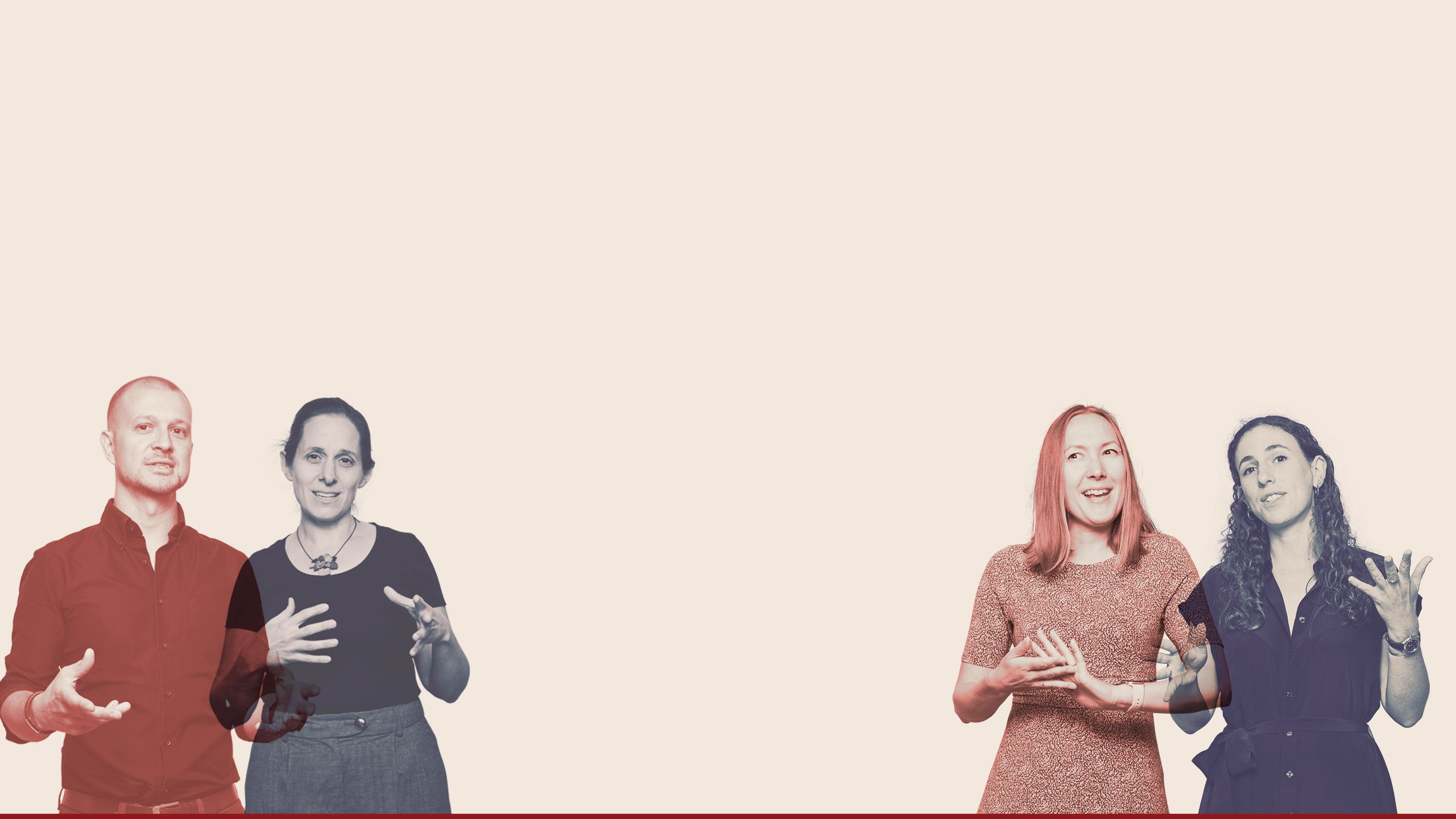Building something better
together

A multidisciplinary, multi-university team is looking to shake up approaches to energy policy.
The climate crisis is looming, and the country is under pressure to hit huge national targets for decarbonisation by 2030 and 2050. Yet efforts to persuade homeowners and landlords to make their homes more energy efficient are still struggling to make an impact.
“We are a group of academics based around the country who are collectively frustrated by the approach to decarbonisation and retrofitting policy,” explains project co-lead Professor Mark Davis (School of Sociology and Social Policy).
“We are challenging current approaches by looking at how people’s relationships shape the way that they make decisions about retrofit.”
The project team, from the University of Leeds, the University of Sussex and the University of Strathclyde, have joined forces to dig into the challenge of retrofitting – renovating buildings to make them more energy efficient – in a bid to help people make better choices.
We were interested in why people would take on that kind of project, but renewable energy was not part of the discussion.
Spending money: how people decide

The ‘Whole Person, Whole Place’ study is being run across three case study sites – Glasgow, Leeds and Brighton – looking at owner occupied mortgaged homes, multiple occupancy tenements and private student rental accommodation.
“We noticed that a huge amount of money was being spent by people at the start of the pandemic on aesthetic improvements to their home, so access to financing clearly wasn’t the only barrier,” says Mark.
“We were interested in why people would take on that scale of project, without energy efficiency measures being part of the discussion. That was our starting point.”
The barriers people face are complex, and current policies are based on orthodox economic theories that often miss what’s going on in everyday life. This research finds that people make decisions shaped by their social relations with others, which has completely different implications for energy policy.
“We’re getting under the skin of what people actually do, and how they establish trust in order to navigate these things,” says Mark.
“Then we can identify the right points in the customer journey to have those conversations – if you're going to have the disruption of a new kitchen, have you thought about putting a heat pump in? Have you thought about having solar put in at the same time?”
It’s about lots of people bringing their particular talents into the space and using them collaboratively.
The team’s strength is in the diversity of skills and experience, says co-lead Professor Lucie Middlemiss (School of Earth and Environment): “It’s about lots of people bringing their particular talents into the space and using them collaboratively. That’s what’s so exciting about it.”
“From theoretical contributions, to more methodological ones from our colleague Dr Anne Owen (School of Earth and Environment) – who is a talented data scientist – to people like Dr Donal Brown (University of Sussex) and Dr Matthew Hannon (University of Strathclyde), who are able to translate our findings into a language that policymakers can understand.”
People are open minded – they want to learn new things, support each other and drive innovation.
Common purpose and learning together
On the Leeds side alone, the team comprises Mark and Lucie, Anne, and research fellow Dr Ruth Bookbinder. At Sussex, there is Dr Donal Brown, research lead Dr Marie-Claire Brisbois and research fellow Dr Giulia Mannini, and in Strathclyde, Dr Matthew Hannon and research fellow Dr Ian Cairns.
Managing such a large project with so many academics spread out across the country is a tricky proposition. How has the team managed it so successfully?
“We have relied on a lot of support staff and professional services to help us navigate the grant proposal and then the admin of the project afterwards,” says Lucie. “For example, Luke Lawrance (Senior Research Administrator) and the Pre-Award team did a fabulous job helping us pull together what was quite a complex bid on time and to the right cost.”
Having a common purpose and a desire to learn from each other has also been key to keeping everything on track.
“It’s testament to the way Steve (original project lead Dr Stephen Hall, formerly of the School of Earth and Environment) set up the project that it runs so well. It’s a team without egos, and I think that's part of the reason it works,” Lucie says.
“The structure is fairly flat, it’s not at all competitive and is very collaborative. People are open minded – they want to learn new things, support each other and drive innovation.”
Pulling together that paper is something I'm really proud of, and I think it will have a really strong impact in the long term.
The project has already led to some unexpected revelations about energy use – including the discovery that the population most likely to apply for energy grants are less affluent households of Asian origin living in terraced housing.
“This was really unexpected and it is a strong trend,” says Lucie. “Nobody is talking about ethnicity and energy use. Pulling together that paper is something I’m really proud of, and I think it will have a really strong impact in the long term. I am delighted that our research fellow Ruth Bookbinder has won funding for a six month follow-on project to investigate the reasons behind the data Anne Owen has gathered on the subject.”
It’s another example of how the team have used their varied skills to further the cause they all feel so passionately about.
“We all really care about the decarbonisation problem,” says Mark. “We’re all a little frustrated with the way in which energy policy is talked about – the people who seem to benefit from that and those who don’t, and the repeated mistakes of positioning policy from the same theoretical position each time and yet expecting something different to happen.
“So we’ve all got a common cause. There’s a real purpose to what we’re doing. Because of that, and because of the disparate expertise we’ve got, it’s the most intellectually stimulating project I’ve been involved in.”
About Mark
Mark Davis is a Professor of Economic Sociology in the School of Sociology and Social Policy. He completed both his Masters and PhD at Leeds.
Mark founded The Bauman Institute international research centre at the University and his published work continues to shape the global study of Zygmunt Bauman’s sociology.
Mark’s interdisciplinary research focuses on questions of economic and environmental sustainability – ‘ethical consumerism’, ‘prosumer communities’, ‘crowdfunding for net zero’ – and the possibilities for more collective, democratic structures to deliver fairer, greener societies for all.
About Lucie
Lucie Middlemiss is a Professor of Environment and Society in the School of Earth and Environment.
She completed her PhD in the School and went on to lecture in Sustainability. She was a co-director of the Sustainability Research Institute from 2017 to 2021.
Lucie’s research interests are in sustainable consumption, energy poverty and participation in sustainable development. She wrote a textbook on Sustainable Consumption and is currently engaged in a number of projects that look at the intersection between energy and the social world.